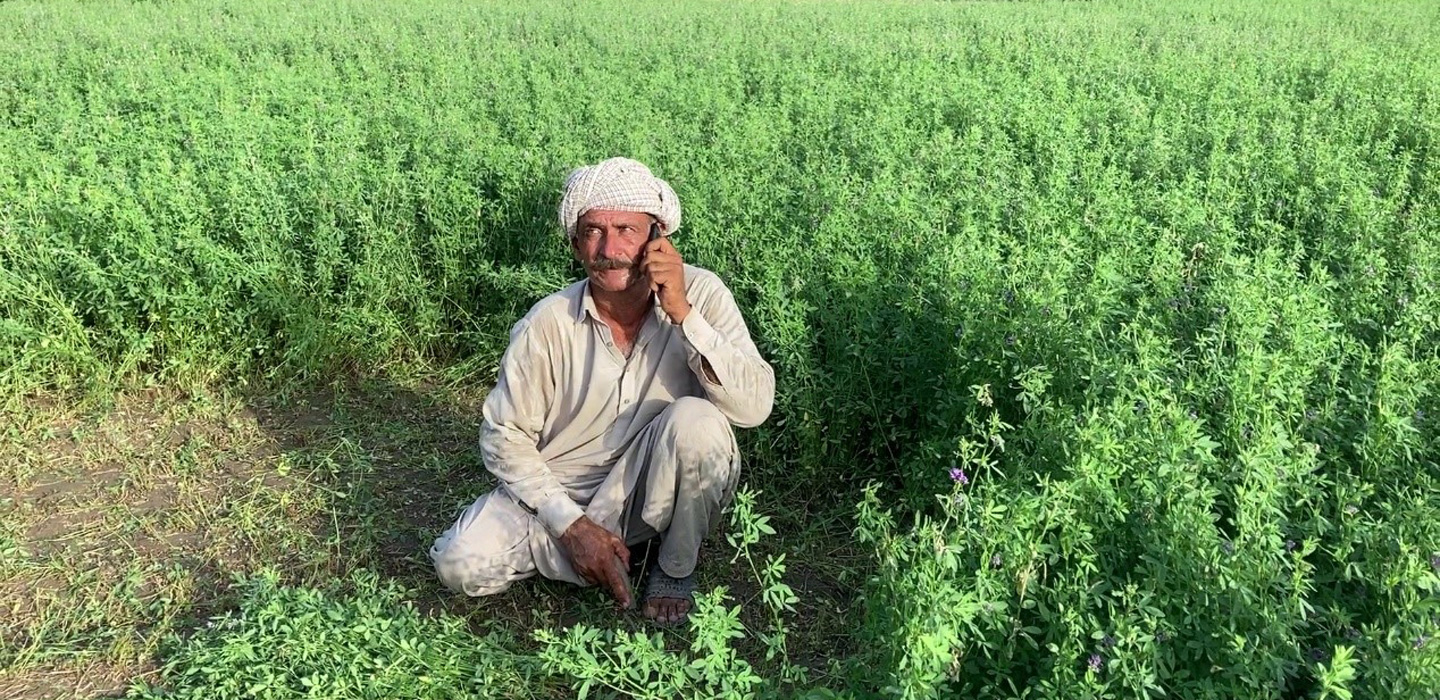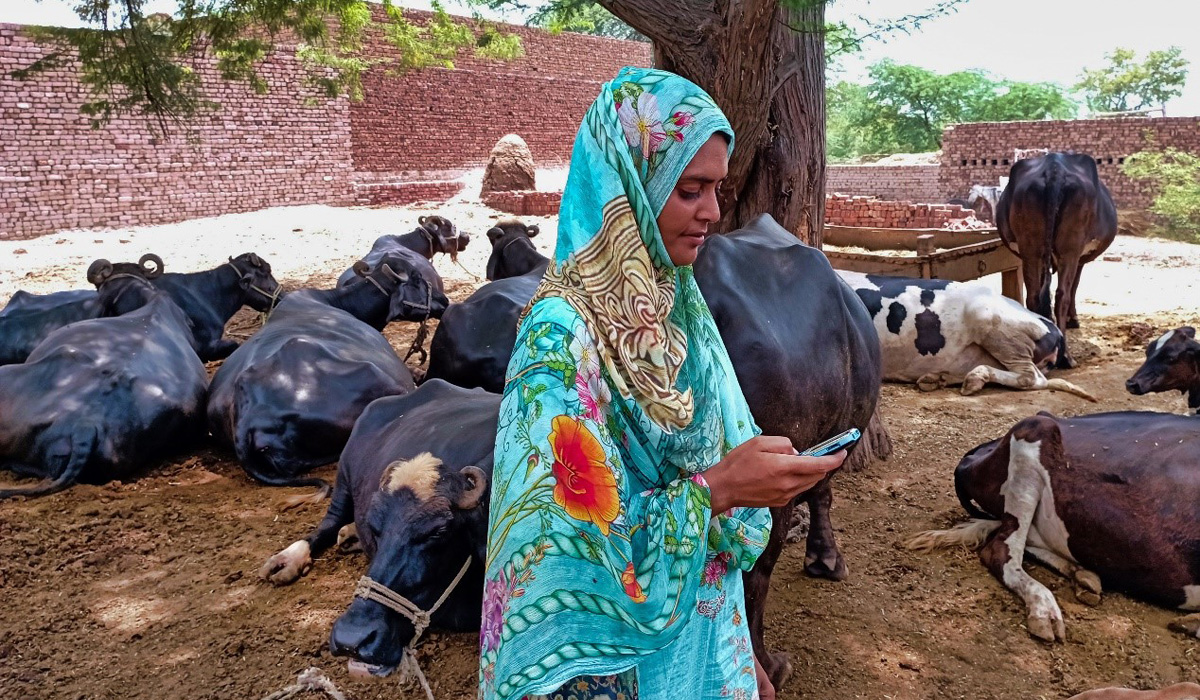How over one million small-scale farmers in Pakistan got the information they needed to withstand the COVID crisis
IFAD Asset Request Portlet
Asset Publisher
How over one million small-scale farmers in Pakistan got the information they needed to withstand the COVID crisis
Estimated reading time: 3 minutes
Punjab province is Pakistan’s breadbasket. It’s where about three-quarters of the country’s wheat is grown, most of it by small-scale farmers.
But Punjab’s fertile fields are also the frontlines of climate change. Heatwaves, droughts, and floods are stronger and happen more often. Small-scale farmers find it hard to cope. Many live below the poverty line and often can’t access credit or negotiate effectively.
Nor is it easy to access agricultural advice as there simply aren’t enough agricultural extension workers to provide this advice in person.
Then came COVID-19. Like everyone else, agricultural extension workers’ movements were restricted. They couldn’t help farmers cope with the new challenges presented by the pandemic, such as finding substitutes for agricultural inputs that were no longer available, or producing cost-effectively with constrained resources.
To help farmers overcome the challenges of the pandemic, an IFAD-supported project, implemented by Precision Development (PxD), shared personalized advice and knowledge to farmers via their mobile phones.
Customized advice at their fingertips
Through automated phone calls, farmers received crop-related advice from agricultural specialists. The advice was tailored to each stage of the cropping cycle—from how to prepare land, select seeds, and sow crops for the best yield, to how to apply fertilizer, irrigate fields, and control disease.
They also received tips on how to become more resilient by using animal manure, tobacco spray, and biopesticides, instead of commercial products that were no longer available due to disrupted supply chains.
Frequent digital surveys helped tailor advice to farmers’ needs. For example, if more than half of registered farmers in a particular area reported a pest infestation, a special advisory focused on preventive measures would be sent to all farmers in the district.
Over 1.35 million Punjab farmers were reached throughout this 19-month collaboration.
 |
| © Rural Community Development Society |
Empowering women farmers
In Punjab, where most agricultural extension workers are male, traditional gender norms constrain women from accessing farming advice, even though they’re often the person responsible for taking care of a household’s animals. Through “digital agriculture” it was easier for women to receive this information.
However, while 104,000 women received informational messages, more needs to be done to ensure women can access mobile phones as they are often controlled by the men in a household.
Hyper-local weather reports
Baseline research conducted by PxD showed that 87 per cent of cotton farmers and 72 percent of wheat farmers had faced challenges related to the weather in the past three years. Without reliable localized forecasts, it was hard for them to decide when to plant and harvest.
In partnership with the Climate Forecast Applications Network, a local weather forecast system was developed to tell farmers what to expect in the coming days. Nearly 200,000 farmers now get voice notes with regular updates and advisories, including when to plant seeds and when to dig channels to divert floodwater. Another 300,000 cotton farmers receive advisories on environmentally-friendly methods of pest management.
What this means for farmers and IFAD
Combined with other factors, these digital tools are changing how people in Punjab farm. An end-line study found that 34 per cent of farmers who used the platform adopted at least one new farming practice recommended by the programme. Over 40 per cent said that the digital advisory services were among the reasons they made this change. Many farmers also noted better production, sales, income, nutrition, and food security.
These results make the case for long-term investment in digital agricultural extension. That’s why IFAD and PxD are working together on other projects, like the National Poverty Graduation Programme, to offer digital services that will help Pakistan’s rural poor improve their food security, nutrition, and climate change resilience, using a fraction of the resources needed for face-to-face agricultural advice.
For IFAD, this shows why digital agriculture needs to be at the very heart of its work. As the world’s poorest people face spiralling food and energy prices, cost-effective interventions, like digital advisory services, can help them make the best decisions for themselves and their businesses.
The Digital Agricultural Advisory Services for Smallholder Farmers in the Context of COVID-19 project was a joint initiative between IFAD and Precision Development (PxD) in Pakistan. Learn more about PxD’s work.
Read IFAD’s ICT4D Strategy.
Publication date: 18 July 2022